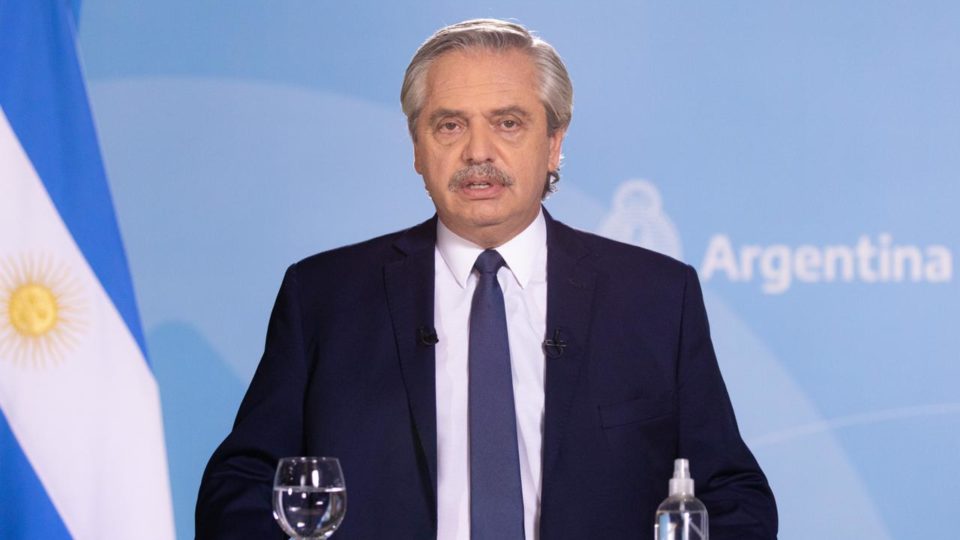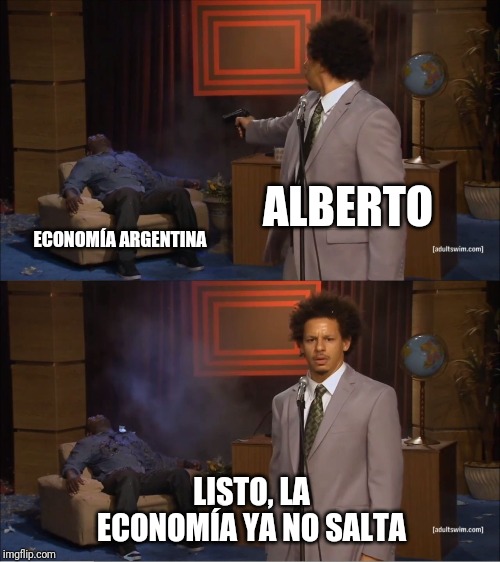RIO DE JANEIRO, BRAZIL – The dreadful inflation figure for February -4.7% overall -with the aggravating factor that the food item registered 7.5%- confirmed what everyone suspected in Argentina: that the price increase ceased to be an economic fact and became a political crisis.
Unlike the debates about the agreement with the International Monetary Fund (IMF) and the rumors about the seriousness of the fight between Alberto Fernández and Cristina Kirchner – issues that are only followed by the “microclimate” of the politicized minorities -, inflation is an issue that has the whole society on tenterhooks. And, as all the political class knows, it has the potential to make governments fail.
The data on poverty and indigence will be released at the end of the month to make matters worse: One of the moments that the government already assumes as a bitter pill to swallow, because it will once again give the measure of the social wound of the country, with a projection of 40% of the population without their basic needs satisfied.

This social alarm motivated the government to give a coup de effect and announce “a war against inflation”. The dramatic name chosen by Alberto Fernandez makes it clear that the main objective was to change society’s expectations, just at a time when all forecasts are being revised upwards.
Surveys among economists, such as the one conducted by the Central Bank, show a projection of 55% for the year. Still, the most skeptical analysts are already openly talking about inflation of over 60%. These figures leave far behind the forecast of the Minister of Economy, Martín Guzmán, who set a target of 43% for the year in the letter of intent with the IMF, and also intends that the unions take this figure as a reference for salary negotiations.
AFTER THE IMF AGREEMENT, THE URGENCY TO REVERSE EXPECTATIONS
Paradoxically, the government’s success in reaching the agreement with the Fund -and its laborious approval by Parliament- was one of the elements that added pressure to inflation because Guzmán committed to cut the state subsidy to energy, which implies that there will be increases in utility tariffs, which will average 80%.
In addition, he committed himself to accelerating the pace of dollar slippage to avoid exchange rate arrears so that while last year the devaluation rate averaged 1% per month, it is now around 3%.
As it has already become clear with the experience of the Macrismo government, a simultaneous increase in tariffs, fuels, and the dollar, for an economy that already had inflationary inertia can be an explosive combo.
In addition, of course, there is the effect of the war in Europe, which caused the usual shock of the change in relative prices. Argentina is a significant exporter of soybean, corn, and wheat, and therefore international prices “infect” domestic prices. As for imports, Argentina is increasingly dependent on the purchase of gas, so it is impacted by the geopolitical change of the sanctions against Russia.
The government’s urgency to change expectations also has another very concrete reason: All economists are already forecasting that in March and April, inflation will remain at a level of 5% per month, given that seasonal factors will play against it and the effect of the increase in public tariffs will start to be fully felt.
THE REAL ANTI-INFLATIONARY PACKAGE
The package of measures prepared by the government included many of the classic measures for these situations: increases in export retentions on products such as oil and flour, creation of trusts to subsidize prices of vegetables and bakery products, maximum price agreements for basic food basket products, interest rate adjustments to withdraw money from the market.
But, as economists already suspect, the fundamental components of the anti-inflationary plan are those that are not announced, some so as not to irritate the IMF and others so as not to create political problems.
To begin with, it became evident that it would not be possible to fulfill the commitment to sliding the dollar price at the same pace as prices. Officials know that this race feeds back and is potentially dangerous, so that, against the IMF’s recommendation, they will once again use the classic instrument of the “exchange anchor”.
This change had already been hinted at: from December to February, against accumulated inflation of 12.9%, the dollar slide was 7.4%. It implies a “dollar inflation” of 5% in just one quarter.
Another “unconfessable” mechanism to curb inflation is to cut salaries so that nominal increases are lower than inflation. Of course, the government is presenting this as a “price and salary agreement”, for which it already has the support of the industrial associations and the trade unions.
Minister Guzmán wants to generalize a wage increase guideline for the year that does not exceed 45% -that is, at least 10 points below the inflationary projection- with the promise that, in the event of an inflationary overflow, an adjustment clause will be applied.
By the way, these adjustments are never applied only once, but in several installments per year, which implies that, even if the salary matches inflation “between points” of the year, on average, there will be a loss of purchasing power.
CLOSING THE MONETARY TAP
But perhaps Guzman’s biggest bet to curb inflation is the fiscal and monetary adjustment committed in the agreement with the Fund.
Orthodox economists affirm that beyond the impact of “imported inflation”, what is driving prices today is the tremendous monetary expansion that took place at the end of last year, coinciding with the closing of the electoral campaign for the legislative elections.
The popularly known Platita Plan implied that in the fourth quarter of 2021, money was issued to finance public spending for a greater volume than that which had been registered in the previous nine months.
In terms of money, some ARS 964 billion (US$8.8 billion) were poured into the market. In terms of the monetary base, they implied an injection of 28%.
Given that there is a “delay” period between this monetary expansion and its reflection in prices, the effect of this monetization of the economy is only now being perceived.
Minister Guzmán is confident that all this will be reversed. There is no room for him to think otherwise, given that he has committed to the IMF to cut the fiscal deficit by one percentage point and, in addition, to limit the Central Bank’s assistance to the Treasury to finance public spending to just 1%, i.e., one-third of last year’s level.
BETWEEN MEMES AND PREVENTIVE INCREASES
But of course, Argentina is at a hypersensitive moment politically, with the government coalition fissured. And so, the government does not want to exacerbate the differences with an announcement that sounds like a traditional adjustment. That is why it announces with a lot of media exposure the measures to persecute “speculators” and threatens companies with sanctions. A concession to his more radicalized partners of Kirchnerism.

In any case, it is not as easy as before to make this kind of announcement in these times. Social networks have been cruel with the government, ironizing with memes and humor about “the war” against inflation and ridiculing some of the measures that sound old-fashioned.
Thus, videos from the ’70s went viral in which militants controlled in butcher’s shops that the maximum prices imposed during the last presidency of General Perón were respected.
And, much more worrying than the mockery in the networks, there is another effect that the government did not see coming: By announcing several days in advance that it would start its “war”, businessmen rushed to a wave of preventive remarking.
Thus, the leading food companies have already passed new price lists, which in the case of dairy products average increases of 10% and farinaceous products such as noodles and cookies reach 15%.
The war announced by Alberto Fernández has already begun with casualties on the pro-government side. But, in reality, the main bet is to achieve, this week, the support of the unions so that the wage increases do not exceed the mark suggested by the government.
Meanwhile, in the streets, the postcard that makes Peronism most uncomfortable continues to grow louder and more massive: the protest of the piquetero movements, which represent the unemployed and informal workers, who in the best of cases receive assistance equivalent to half a minimum wage, a sum that is equivalent to 25% of what is needed to be above the poverty line.

